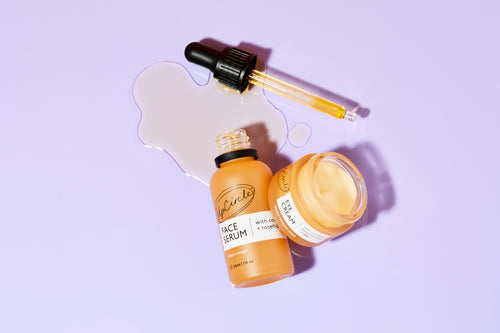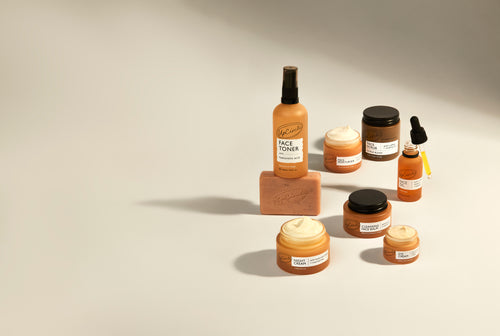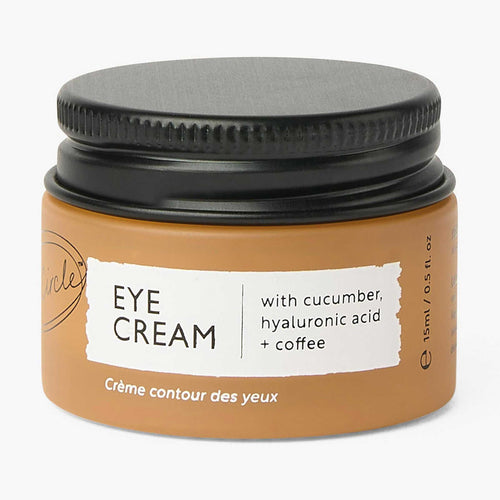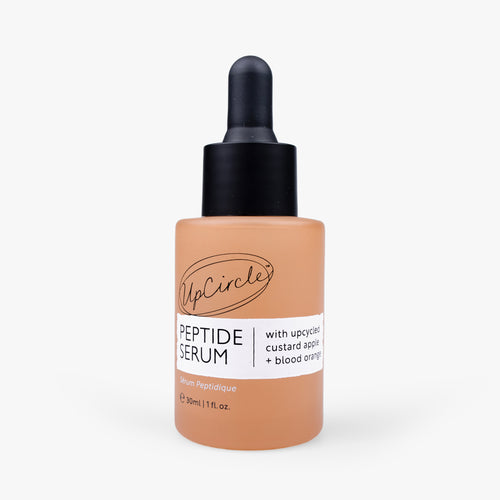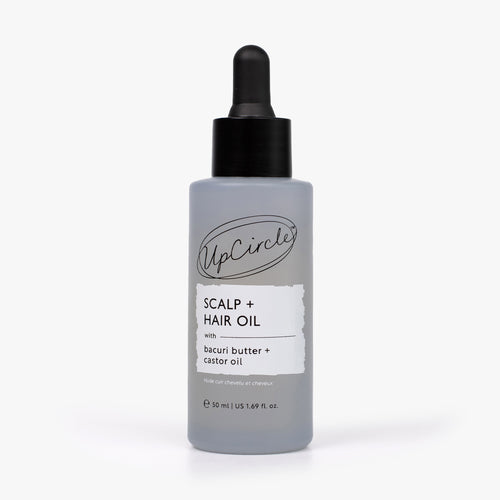Lockdowns, separation from loved ones, money worries, loss of spontaneity and not to mention the health worries – COVID-19 has got a lot to answer for. And then along came maskne. No, you are not imagining it; if you’re suddenly getting more spots around your nose and chin, you’re not alone.
Can face masks cause acne?
It’s not a figment of your imagination. If you’ve noticed a relationship between face mask use and spot outbreaks, you’re in good company. Wearing masks is a necessary part of our social responsibility to help reduce the spread of COVID-19. Most of us understand why they are needed, even if we don’t particularly enjoy wearing them. But unfortunately, they can cause redness, spots and irritation around your chin, nose and mouth. This is known, not-so-affectionately, as maskne.
Although a play on the word ‘acne’, maskne isn’t necessarily the same as the deep and painful breakouts of typical acne. You may simply notice shallow pimples or an increase in the number of blackheads. This is because maskne has a different cause than the usual hormone-fuelled acne.
Maskne is actually caused by dirt getting into your pores as a result of micro-tears caused by the material of the face mask rubbing against your skin. Your pores get clogged and, combined with the heat and humidity of the mask, it’s a shortcut to Spots-Ville. Normally, those who are pimple-free have skin that is efficient as self-cleansing. Wearing a mask for any period means the dead skin cells and grime have nowhere else to go, and the humidity is a perfect breeding ground for spot bacteria.
How to prevent spots caused by your face mask
We’ll come onto treating maskne shortly but, as always, prevention is better than cure. So follow these steps to help prevent spots caused by your face mask:
Wash your mask
If you use a cloth mask, wash it regularly. If you have to wear a mask for extended periods, have multiple ones to hand. When the mask gets damp, change it and then wash it before you wear it again. This will ensure bacteria don’t get a chance to hang around.
Wash your face
Before you wear a face mask, cleanse your face if you can. Our Cinnamon and Ginger Chai Soap Bar is the ideal cleanser for these situations.
Avoid make-up
With face masks on the scene, it’s time to let beauty go au-naturel or focus on your eyes alone. Don’t slather on foundation and concealers – remember you can hide your pimples behind the mask anyway!
Choose your mask wisely
To prevent maskne, you want to wear masks that fit well. They need to not be too tight or too loose. You also want to choose soft, natural fabrics. Cotton is the best option. If you’re a dab hand at sewing, you can whisk up some skin-friendly masks using organic cotton muslins. This way they will fit you perfectly.
Mask-friendly skincare
Here we cross over from prevention to treatment. A good mask-friendly skincare routine will help prevent and treat maskne.
Mask-friendly skincare and maskne treatment
Morning and night (as well as during the day, if you’ve had prolonged mask-wearing) use a mild soap with water to cleanse your face. The Chocolate Charcoal Chai Soap Bar is ideal for using in the morning and the evening.
We also recommend that you keep your skin hydrated, but apply moisturiser away from the time you’ll be putting your mask on. The UpCircle Face Moisturiser with argan shells is quickly absorbed, ensuring you benefit from hydration without greasiness.
If you have to wear a face mask for extended periods, you can freshen your face throughout the day with another soap and water cleanse. Or spritz with Mandarin and Chamomile Face Toner to calm any redness. Our toner also contains hyaluronic acid, which not only locks in ‘good’ hydration, it creates a barrier to help lock out dirt.
A couple of times a week opt for some gentle exfoliation with the Coffee Face Scrub Herbal Blend. This buffs away dead skin cells and dirt, and also contains tea tree oil which is a natural antibacterial agent, known for fighting spots.
Also several times a week, relax for 10 minutes with a cooling and clarifying Face Mask with Olive Powder. This will help to tackle any blackheads.
Are some people more prone to maskne than others?
Whilst anyone can get maskne, some individuals are more susceptible.
If you already have acne-prone skin, then unfortunately you’re more likely to struggle with maskne. Really take care with your skincare routine and try to eat a clean diet rich in antioxidants. You might also like to dive in to our tips for acne-free skin. The Acne-Attacker Bundle is a cost-effective way of getting all of the best natural skincare products tailored for acne-prone skin.
Other individuals who may be more prone to maskne are those who also experience redness and irritation, such as those with rosacea, eczema or skin sensitivity. Additionally, those with perioral dermatitis, which largely affects women between 20 and 60, also seem to be particularly prone to maskne.
And one more maskne culprit…
Lastly, it’s fair to say that everyone is living under greater degrees of anxiety and stress due to the pandemic. Having to don a face mask to do simple everyday tasks turn simple things into stressful occasions. That’s before factoring in any worries you feel about the wider impact of COVID-19, or how it impacts you personally.
Unfortunately, our skin doesn’t like stress! You are more likely to experience breakouts when you are stressed, worn out, or under the weather. Take a look at some of our suggestions for managing stress and this will help to armour you against spot outbreaks.
Hopefully, when you draw all of the maskne prevention, treatment and stress-busting tips together, you can keep maskne under control.

